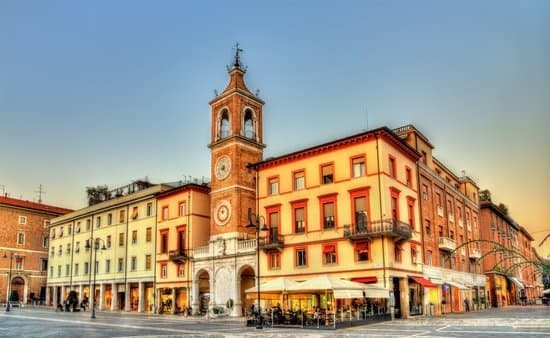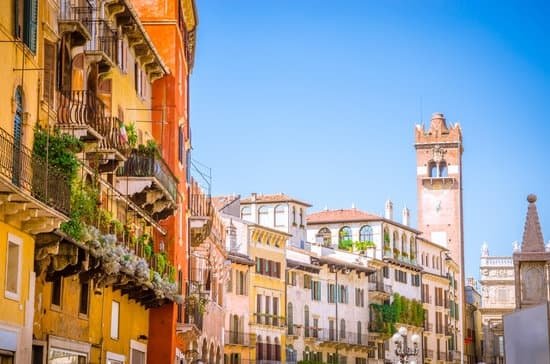
Traveling alone is becoming increasingly popular, with more and more people taking the leap to explore the world without a companion. Italy undoubtedly offers a wealth of fascinating sights and experiences, all within easy reach. However, for solo travelers in Italy there are certain considerations that should be taken into account before embarking on the journey.
The Benefits – Advantages of traveling in Italy without company One of the key benefits of traveling solo across Italy is freedom – the ability to make decisions and move at your own pace without having to consult or take into account other perspectives or preferences. There is also more space for personal spiritual growth and freedom from big-group dynamics to create an individual narrative around exploration and discovery, which can have far-reaching effects after returning home.
Finally, another great benefit is being able to meet easily new people, as solo travelers can easily strike up conversations with those they encounter along their path while making lasting friendships over shared interests.
Challenges Solo Travelers Will Face In Italy Despite these advantages, solo travel also comes with some challenges that must be managed carefully if it is to be enjoyable. Language barriers can be an issue for many travelers; knowing basic Italian language skills makes sense if necessary arrangements are to be made with locals who may not speak English fluently or understand traveler’s needs quickly.
Finding places to stay can also present difficulties because beds in hostels may not always be available at a moment’s notice; planning ahead is imperative. Additionally, interacting with locals may be tricky as Italians tend to travel as a group so being alone could feel quite intimidating at times.
Tips To Consider When Travelling Solo In Italy – useful advice There are several tips that can make solo travel in Italy much easier and more enjoyable: Investigate transportation options before arriving in order to avoid confusion during the trip; this means familiarizing yourself with different public transport services around your destination for reliable journeys between sites and attractions.
Avoid carrying too many belongings with you; most hostels have lockers which provide secure storage facilities for valuables or lightweight backpacks such as those provided by airlines usually carry everything you will need for your trip without weighing you down unnecessarily during walks or sightseeing tours.
Finally, it’s best to make sure you are aware of local laws and customs in order not to find yourself lost in unfamiliar waters without any help or support.
Preparation
1) Research: Researching your destination is arguably the most important step before embarking on a solo trip. Make sure you research the area you’re visiting, including safety, attractions, landmarks, restaurants and other activities. This way you’ll be prepared for any surprises you may encounter while traveling.
2) Pack light: Being able to move freely and without hindrance is essential for solo travelers. To do this, ensure that what you pack can fit into one carry-on bag or small suitcase with ease; it will make your journey a much smoother one.
3) Bring all necessary items: Make sure to bring all the necessary items for your trip including suitable clothing based on the climate of your chosen destination. Also consider bringing a first aid kit including basic medical supplies such as bandages, antiseptic cream and painkillers just in case of an emergency. It’s also wise to bring any necessary adaptors or travel chargers so that you won’t be caught off guard when it comes time to charge devices.
Staying Safe – Advice on how to stay safe during a solo trip
- Always share your itinerary with loved ones: Before leaving for the airport be sure to let family and/or friends know where and when they can expect to hear from you.
- Stay connected: Keep your phone battery charged as much as possible by plugging in whenever possible and carry extra chargers if needed. You can also use Skype or Facetime audio/video calls if wifi becomes available.
- Trust Your Instincts: If at any point something doesn’t feel right then don’t hesitate to trust your gut and be aware of surroundings at all times.
- Be mindful of staying in populated areas head up late at night: Predominently try to avoid taking public transport alone late at night as it may increase risk of robbery or attackers.
Stay Safe
1. Carry a map and know where you are at all times – A detailed map of Italy can help you identify popular cities, tourist destinations, and safe spots for solo travelers. Additionally, be sure to keep track of your location by keeping a note of the landmarks you pass or take pictures for reference so that you don’t easily get lost.
2. Research the area before traveling – Do some research prior to venturing out for the day. Get an idea of what transportation options are available in the area, and familiarize yourself with the local customs and rules, particularly if visiting large cities like Rome and Venice.
3. Dress smartly – Dressing conservatively can decrease the risks associated with being a solo traveler in Italy; choose comfortable shoes and send clothing items that cover arms and legs while out exploring during the day or taking transit at night.
4. Trust your gut instinct – If something doesn’t feel right, trust your intuition. Don’t indulge in activities that make you feel uncomfortable or unsafe – there will always be plenty of alternative options to check out.
As it is often said, prevention is better than cure – stay alert and cautious during your travels to ensure safety on all fronts.
Standard HTML Output
- Carry a map and know where you are at all times
- Research the area before travelling
- Dress smartly
- Trust your gut instinct
Accommodation
1. Staying in a Hostel: Despite the stigma that is often associated with hostels, they are a great option for budget-minded solo travellers in Italy. Not only do they offer affordable accommodation, but a hostel stay provides an opportunity to meet other like-minded travellers and even access organised social activities. Make sure to read reviews of the hostel prior to booking, as well as confirm what amenities and services are included with your room before making a reservation.
2. Airbnb: Airbnb has become increasingly popular worldwide for solo travellers looking for both private and shared accommodation options. Renting an entire apartment or a single room can be more comfortable and cost-effective than staying in a hotel. To make extra savings check out ‘Luxury Retreats’ or condo rentals which often offer weekly discounts on stays.
3. Bed & Breakfasts: A B&B is also an excellent way to save money while travelling alone. These types of hosts usually own just one property that they rent out, offering guests what typically feel like home away from home experiences by providing personalised attention and hospitalityFrequent Airbnb or B&B users also benefit from reviewers’ recommendations which help them determine the best available options before booking their stay.
- Hostels.
- Airbnb.
- Bed and Breakfasts.
Language
1. Learn the basics: The most important tip for solo travelers is to learn some basic Italian phrases before they depart on their journey. Phrases such as ‘hello’, ‘good morning’, ‘please’ and ‘thank you’ can go a long way in establishing a connection with locals and easing communication woes. Furthermore, learning the days of the week and numbers also prove to be pretty useful.
2. Seek help from locals: Locals are eager to assist when it comes to communication issues due to the language barrier. Asking questions such as ‘Como stai?’ or ‘Un caffe per favore?’ (How are you?/A coffee please?) will not only save effort but also put an honest smile on a person’s face for trying to converse in their language, thereby making locals feel more comfortable while attending to your needs.
3. Download language resources: Technology has made it easier than ever for international travelers stay connected and become independent when travelling alone in Italy without worrying too much about communicating with strangers and getting lost in translation.
Many smartphone applications are available today which can easily translate common Italian phrases into English, even offline with no internet connection required. Alternatively, travelers can purchase pocket phrasebooks which provide clear translations that may be helpful when visiting isolated areas of Italy where technology doesn’t reach much wider than herself.
- Learn basic Italian phrases
- Seek help from locals
- Download language resources
Food
If there is one thing Italy is famous for, it’s the food. From creamy carbonara and meaty lasagna to decadent tiramisu, Italian cuisine can be enjoyed in restaurants and homes alike. However, as a solo traveler, you may find yourself struggling to consume the volume of food that comes with classic Italian dishes. Here are a few tips on how to make the most of Italy’s delicious gourmet without going overboard:
Order Small Portions
When dining out, always remember that Italian main courses usually come in large portions; often enough to feed two people. Stick to ordering smaller portions such as primi (first courses) or mezzi (small-sized mains). This way you can get the full flavor experience of Italian cuisine without having to spend more than necessary or dealing with over-eating.
Sample Local Eateries
Rather than dine at popular tourist spots, try sampling local eateries or ‘trattorias’ where Italians go when they want genuine home cooking at lower prices – like ‘il ristorantini vicino alla casa di zia Maria’ (the little restaurant next to aunt Maria’s house). Make sure you order dishes that come from a particular region rather than generic transnational ‘Italian’ fare as it will give you an opportunity to experience authentic flavours native to that area.
Be Mindful of Your Juices and Sugars
Apart from portion sizes, also bear in mind your consumption of juice and sugar while in Italy, especially if you have specific dietary requirements. While it might be tempting, ordering sugary drinks is not necessarily recommended as Italian juices can be very sweet; opt for light sangria over cocktails if possible.
Connections
1. Reach out to the local Italian community, both online and offline. Make use of sites like Couchsurfing and Meet Up to connect with locals who are passionate about showing off their culture, hosting travelers, or leading tours.
2. Connect with other travelers online – this can be done through social media groups such as Facebook or Twitter, travel forums or review sites, and travel app networks. This will not only help you meet other people with similar interests, but also give you the opportunity to exchange tips on how to best enjoy Italy’s local attractions.
- 3. Take advantage of Italian hospitality – most locals are warm and incredibly welcoming to foreigners in their country. Strike up conversations in cafes or at tourist sights, ask for recommendations on best places to go, local dishes to try, etc. Some small towns may even invite you into their homes for dinner. You never know what kind of connection you’ll make if you’re willing to take a chance on meeting new people.
Be Cautious – How to protect yourself while traveling alone
- 1. Be wary of your surroundings – pay particular attention late at night as some streets might have unsavory characters lurking about; always keep your distance from them and be sure to stay on well-lit roads during those hours as much as possible. Choose trusted transporation options such as taxis or pre-booked trips if travelling far distances.
- 2. Stay alert when sharing personal information – don’t be too quick to trust others that you barely know, including locals and other travelers. Keep a strong defense against crimes of opportunity by making sure your belongings are secure at all times (ie: don’t leave bags unattended in your hotel room).
- 3. Be discreet with money – Do not flash wads of cash around avoid having money stolen either from pickpockets in public places or scammers at monuments/restaurants etc.
Tips and Tricks
Solo travel in Italy is an unforgettable experience. With its unique culture and stunning landscapes, there’s no shortage of beautiful sights to explore. However, it takes some planning to make sure your adventure goes off without a hitch. To help you plan ahead and maximize your time and budget, here are a few essential tips for solo travelers in Italy:
First, meal planning is key when traveling alone on a budget. Many cities in Italy have dining options for all budgets, so make sure to do your research in advance. Look into different restaurants and cafés to see what kind of deals they offer for solo diners.
You can also check out local markets for fresh produce and other treats at low prices. Having snacks or lunch items on hand will save you time and money while ensuring you’re always getting the best eats when hunger strikes.
Another important part of budgeting for a solo Italian trip is transportation. Public transport options like buses or trains are usually more economical than renting a car or hiring private transfers, so consider which option works best for you depending on where you want to go.
Popular tourist attractions often have convenient public transportation links, so do some research before heading out so that you can save money where possible. Additionally,, websites like Rome2Rio can also save you time by giving quick comparisons between various routes and their cost estimates – this way you can make the most informed decision when it comes to planning your route around Italy.
Finally, one of the best ways to learn more about Italian culture is through its language. Try taking an Italian language class before your trip so that you can converse with locals during your travels – not only will this be an interesting cultural exchange; but speaking the native tongue may even earn you discounts from small business owners along the way.
Learning simple phrases such as “hello” and “goodbye” will open up many doors while also showing your respect for local customs during your travels in Italy as a solo traveler.
In summary, planning ahead is essential when prepping for a solo trip to Italy. Meal planning can save both time and money; public transport is usually cheaper than private transfers; finally having some basic understanding of Italian opens up endless possibilities when interacting with locals. So whether it’s eating delicious meals or exploring famous sites around Italy; remember that these tips will help ensure that each day brings an unforgettable experience tailored just for you.




